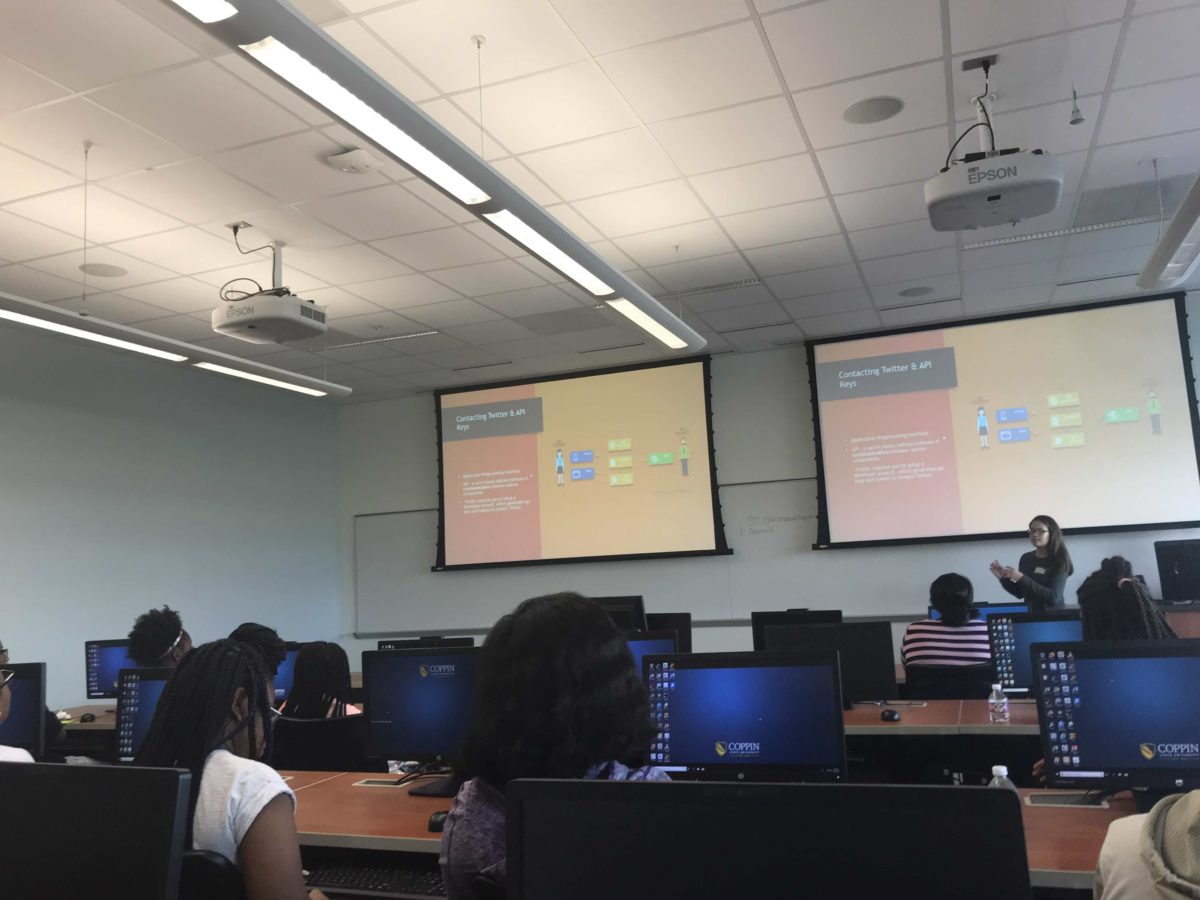Computer science education nonprofit Code in the Schools (CITS) is expanding a partnership with the City of Baltimore that allows students to gain coding skills and work on civic tech within city government.
The effort, dubbed the “youth pipeline partnership,” began with students learning Python and working on projects in the city’s Department of General Services (DGS) last year. CITS aims to expand to the Baltimore City Health Department as well.
In late February, the city’s Board of Estimates approved an amendment to the agreement that extended the amount of funding for the effort, dubbed the youth pipeline partnership, to $100,000. Initially, the agreement provided $30,000, city documents state.
About a year ago, Code in the Schools signed a memorandum of understanding with DGS as well as the Baltimore City Office of Information and Technology (BCIT). Along with gaining tech skills and experience, it’s designed to help open a pathway to tech jobs.
“With the mayor’s support we are going to be proactively engaged in growing our own pipeline of tech talent by engaging our city’s youth,” said BCIT Director Frank Johnson said at the time.
In a recent interview, CITS CEO Gretchen LeGrand and COO Dianne Conley said the Station North-based nonprofit said the partnership with the city helps build more work experience into its programming.
“In our discussions with industry, a lot of people are willing to set aside the degree requirement, but they really want to hire people who have some degree of work experience, so we’re starting to build in opportunities for students to get that in gradual ways,” Conley said.
The agreement with the city helps formalize a program where that experience is repeatable. Additionally, the work on agency projects provides exposure to tech work within city government.
The program combines the education and experience. Students participating in the program last year learned Python during classes at CITS, with curriculum that was designed to help support city projects.
Inside DGS, students worked on projects including a dashboard showing key performance indicators and a Twitter bot. At the conclusion, students presented to a panel of Baltimore tech executives, and one participant joined DGS over the summer as an intern.
This year, work with DGS is slated to continue through the program, and there’s room in the MOU for other agencies to get involved. Students will be working with the health department.
“The opportunity to make technological progress on key issues, while also supporting the community through education aligns with the Health Department’s mission, said Baltimore City Health Department Chief Information Officer Mike Fried, who previously led work on health department projects undertaken by members of the tech community including CITS students through the TECHealth program. “Code in the Schools brings technical competence and a deep commitment to our community.”
Over the next year, Fried said the health department is planning to work with CITS to build project teams that work on a series of pilot projects over the year, including an immediate focus on using AI to build responsive systems for tech support and increasing internal capacity.







